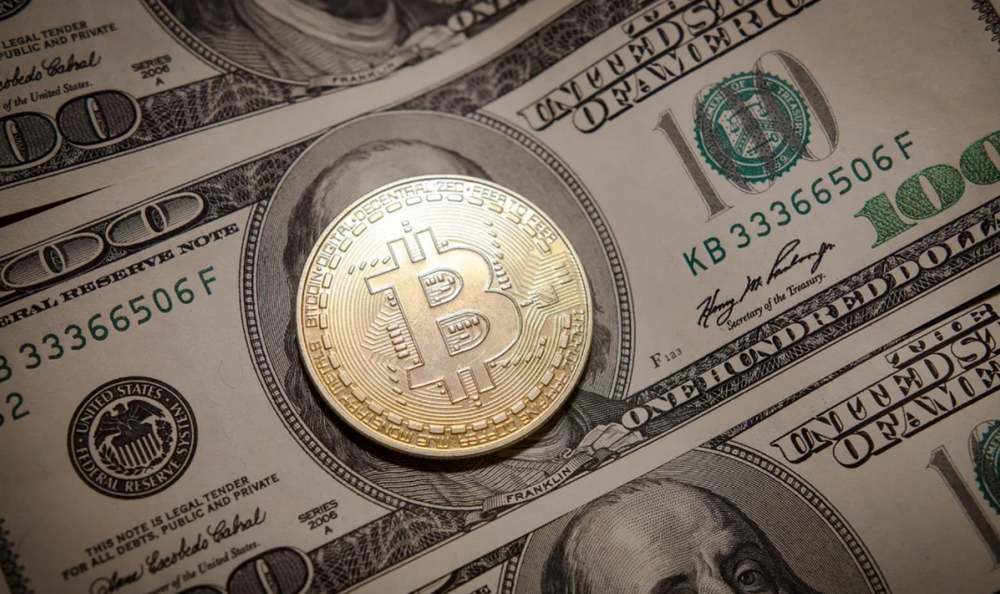Viewpoint | The cryptocurrency industry is modern alchemy
Author: Meltem Demirors, investment institutions CoinShares chief strategy officer, a former general manager of the DCG Director
Translator: Chain smell
Will it evolve from pseudoscience to primitive science or degenerate into religion?
You may ask, why do I write " Alchemy "? Haven't we been talking about bitcoin all the time? Don't worry, my friends, give me some time, you will understand the relationship between the cryptocurrency industry and alchemy .
- Developer benefits! It takes a few minutes to start building Ethereum, and Ethereum Studio 1.0 is officially launched.
- The real Nakamoto is being held in jail? The bitcoin founder more likely than "Ao Ben Cong" appeared
- Ethereum Foundation: Ethereum Studio is officially launched, the development environment is simple and easy to operate

Meltem Demirors is currently the Chief Strategy Officer of CoinShares, a former Managing Director of the Digital Currency Group, a well-known investment institution, and a member of the Global Futures Forum of the Blockchain Global Economic Forum in Davos.
A brief history of alchemy
The word alchemy comes from the Arabic word " al-kimiya ", and kimiya refers to the act of casting metal. Early alchemy focused on purifying and perfecting certain materials, such as converting base metals (such as lead) into precious metals (such as gold), or developing some elixir, or creating panacea to treat disease. The goal of alchemy is to figure out the mysteries of the spirit and soul, or the role of human beings in the greater mysteries of the universe, or to gain true knowledge.

By the way: You may have noticed that many cryptocurrency companies are named after ideas related to alchemy. I think this is a very funny thing. After reading this article, maybe you will feel the same with me.
Alchemy usually has a negative meaning, reminding people of female warlocks, witches, and snake oil salesmen. Alchemists are often seen as scammers who want to " get rich quickly " or reveal some mysterious mysteries through dark magic. However, the practitioners of alchemy actually have good intentions and are eager to use knowledge as a tool to help human progress.
More interesting than alchemy itself, this pursuit promotes the rapid development of disciplines such as philosophy, chemistry, biology, physics, and geology. At first it may be a pseudoscience, which originated from mysticism, but then slowly developed into a primitive science with practical applications and practical significance for the future of mankind. Below, please allow me to tell a short and incomplete history of alchemy.
Most of the history of the first millennium of alchemy has been forgotten by us today – we only know that the Egyptians have made great progress in metallurgy, and the Chinese have made great achievements in chemistry. The first well-preserved alchemy records began in the Arab world, around 800 AD, and were recorded by an alchemist named Jābir ibn Hayyān. He was one of the first people to introduce experimental ideas into alchemy. He wrote:
The first essential point of chemistry is that you must actually operate and experiment. Those who do not operate or experiment will never be able to master even a little skill.
Please note that Jābir ibn Hayyān is also a futurist . One of the goals of his research and experimentation is to reveal takwin, the ability to create man-made people in the laboratory.
400 years later, after the Dark Ages, the tradition of Arab alchemy was further expanded in Europe during the Renaissance. For the first time, Arabic scripts were translated into Latin, and theologians (religious students) began to incorporate elements of chemistry, biology, and astrology into their research and writing. From 1300 to 1700, alchemists continued to explore their skills in the search for drugs, mining, metal production and other entrepreneurial fields. Many alchemists are also entrepreneurs who seek to use science to solve new problems and explore new opportunities.
In the 1600s, chemistry began to differentiate from the large field of alchemy and evolved into a primitive science. The earliest practitioners were Boyle (remember the famous Boyle's law in chemistry?) and Isaac Newton. Interestingly, Boyle was one of the first chemists to record for his chemical experiments. He repeated the experiment over and over again, recording every subtle parameter modification. He also publishes the methods and details of his work in a language that is suitable for the public. Boyle’s legacy has made a major breakthrough in chemistry, and Lavoisier began to reclassify chemical elements from Aristotle’s gas, earth, wind, and fire to metallic and non-metallic elements. Subsequently, Mendeleev divided the elements by atomic number, creating the periodic table of chemical elements we use today.
Therefore, alchemy began to appear as "pseudoscience", which dig deeper into certain fields (such as material research) and slowly transform into primitive science, such as chemistry, which became a branch of modern science. Mining a new "truth" is a process that takes a long time, defined by curiosity and experimentation. The new knowledge gained from these discoveries is applied in a variety of ways and further commercialized to assist in medicine, industrial processes, and the like.
Finally, I want to point out that alchemy is not just about science. In fact, science and spirituality have always been closely linked, because science is an effort to understand the causes and ways of phenomena in nature and the supernatural world. Alchemy affects philosophy, sociology, psychology, and theology , and certain branches of alchemy have become certain mysterious religious communities.
The cryptocurrency industry is also basically "pseudoscience"
The author's view is that most of the " cryptocurrency industry " today is still in the pseudo-scientific stage. I also think that basically "encryption" covers a large area of thought and needs further subdivision. The same is true of alchemy. The early stage was a broad field of exploration. The final step was refined into various sciences, pseudosciences, and religious/mysticism…

The difference between science, pseudoscience, and religion
We can analyze the "pseudoscience" characteristics of the cryptocurrency industry by :
- Feel free to use LaTeX fonts;
- Calling everything "white papers" and trying to legalize the content in this way;
- Feel free to use basically meaningless random words;
- Practitioners rely on commonalities and common cultures of memes and other esoteric forms;
- Practitioners’ claims lack experimental evidence , relying on authority and other methods to establish relevance and effectiveness;
- Any criticism will be seen as a coordinated attack on the "community";
- Many cryptocurrency projects have a lofty and all-encompassing goal, from philosophy, politics, economics, networking, computer science, mathematics to ethics, but they cannot clearly articulate the mechanisms by which they actually operate .
In fact, I have known the cryptocurrency industry as financial alchemy for some time. It is fair to say that a small subset of some cryptocurrency communities will continue to exist, in much the same form as the pseudo-science and religious revival movements. In fact, I think this era of "blind faith" is about to come to an end.
In order for our industry to evolve and mature, the cryptocurrency industry should transform from pseudoscience to primitive science , and the market seems to agree with this shift. Today, we still don't know what the "cryptocurrency" can achieve and how it can be achieved (except for bitcoin, as explained in more detail below, Ethereum is not here to some extent). There is no consensus on what the "blockchain" is. Of course, Bitcoin's blockchain and its functions are clearly defined by technology.
In order for the industry to be respected, industry participants and external analysts must be able to identify, collect, and analyze data so that one story can be clarified, what is the meaning of the cryptocurrency industry, how it will affect technology, markets, politics, Society and the wider world .
As an investor, my job is to further advance this work, using my exclusive data, insights and relevant industry background and expertise to determine when and where these changes may occur and who will benefit from them. Not only financial but also social and political benefits.
Evolution to primitive science
The challenge we face now is how to distill a large, broad and esoteric thing into certain basic and discrete components for further research and analysis. There are many articles in this area, and the knowledge area related to Bitcoin is the largest. One of the reasons I like to work in this industry is that to fully understand Bitcoin, there are so many different areas involved .

Bitcoin is the easiest to understand for many market analysts. why? Mainly because Bitcoin is currently the most observed and researched (thanks to the chain of data for ten years). And Bitcoin has expanded into other traditional and emerging sciences, and some academic institutions and research organizations are collecting and analyzing data on Bitcoin protocols, Bitcoin networks, and Bitcoin applications and use cases (primarily financial). Perhaps there is another manifestation of this preference, that is, the knowledge field around Bitcoin has been so developed and systematic, which is unmatched by other mysterious ideas such as crypto assets and "blockchain".

There may be other delicate ways to analyze this problem, but for me, obviously there are many things in the religious/superstitious field (forever you love Tacocoin), and many things in pseudoscience and trying to become primitive science. stage.
I am happy to see that there is a lot of work being done to further subdivide, analyze and advance the areas related to "cryptocurrency". As a person who analyzes the cryptocurrency industry, I am most interested in building frameworks, charts, and graphics. I hope that people will see these results and use them, improve them and share them widely. How do you think that the “cryptocurrency industry” will move forward and become a research field and an area worth exploring?
We will continue to update Blocking; if you have any questions or suggestions, please contact us!
Was this article helpful?
93 out of 132 found this helpful
Related articles
- Netizen brain time: Can Bitcoin really reach $1 million?
- After the ICO bubble burst, how is the Ethereine network developing?
- Central Bank: Announcement on the fraudulent use of the People's Bank to issue or promote legal digital currency
- Tucao: What are the three major card chain tours?
- People's Daily Online: Behind the strategic positioning of the blockchain country, Chinese companies are racing against future card positions
- IBM reports: the central bank may launch consumer-use central bank digital currency within five years
- QKL123 Quote Analysis | Short-term disk is constantly being tested; how will Bitcoin evolve in the future? (1113)






